Good Diet to Lower Ldl Cholesterol
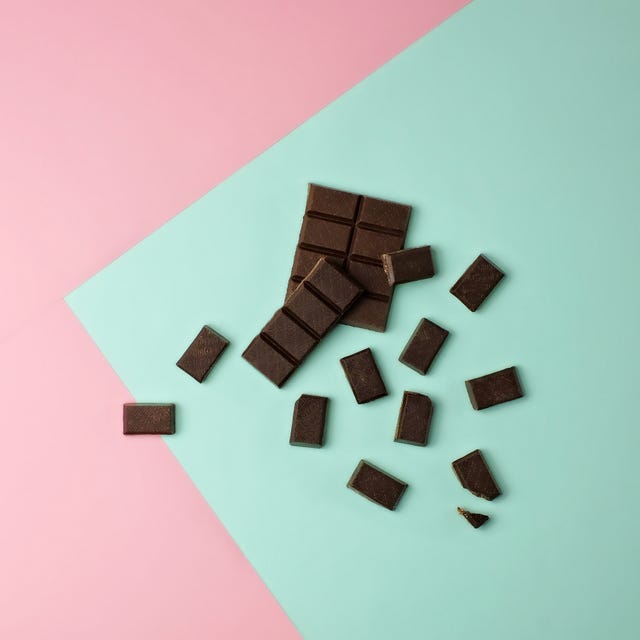
Juj Winn
Sitting in your doctor's office being told that you have elevated cholesterol can feel like a big blemish on an otherwise good bill of health. But you aren't alone — according to the Centers for Disease Control and Prevention, nearly one in three Americans are plagued with high cholesterol, a risk factor that significantly plays into your prospects of developing heart disease in the long run. A diet high in cholesterol can also influence your risk of stroke, but presents no signs or symptoms beforehand, which is why strokes can feel so sudden and unexplained. How can you get ahead of the curve, you might ask? It's all about adding more foods that are rich in good sources of cholesterol — not all cholesterol is the same, in fact! — and finding foods that can cut how much cholesterol you're eating elsewhere.
First, a quick explainer: Cholesterol is a waxy substance that travels through your bloodstream, but not all of it is bad. HDL cholesterol (also known as. "good" cholesterol) actually sweeps away LDL cholesterol, or what's commonly referred to as the "bad" kind. A high LDL level puts you at risk for heart attacks and strokes because it can clog arteries with plaque, a condition called atherosclerosis. A blood test can determine whether you have high cholesterol, and your doctor may recommend exercise or medication in addition to a healthier diet.
While there is an optimized diet for hypertension and optimal cardiovascular health, lowering your cholesterol through your diet is actually pretty straightforward. It's all about doubling down on certain heart-healthy ingredients when possible. Adding more veggies, fruits, nuts, seeds, fish, and whole grains to your diet can help lower your levels and reduce plaque buildup. Try these heart-healthy foods for the best nutrition-based benefits.
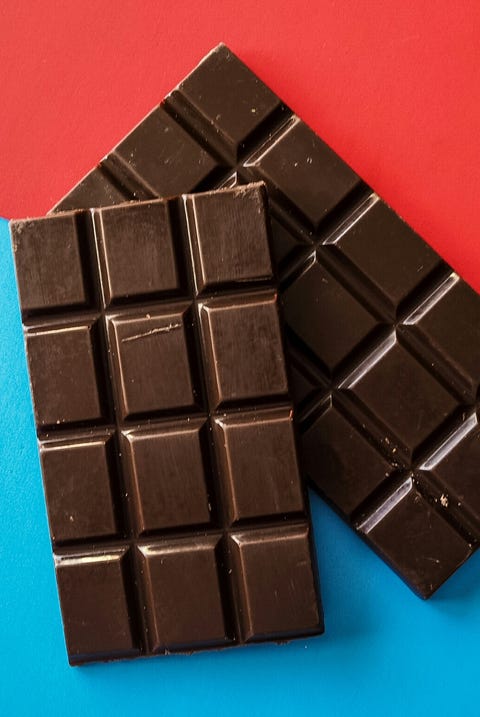
Reese Lassman / EyeEm Getty Images
1 of 40
Dark Chocolate
Dark chocolate is a naturally sweet treat you should feel great about; it contains more cocoa than other chocolate products, which provides higher amounts of flavonoids in each serving (a boon for your cardiovascular system!). A 2017 study published in the Journal of the American Heart Association found that eating dark chocolate (as well as almonds!) improved blood lipid profiles over time. Try to select a dark chocolate product that is at least 75% concentrated or higher, says Stefani Sassos, MS, RD, a registered dietitian with the Good Housekeeping Institute.
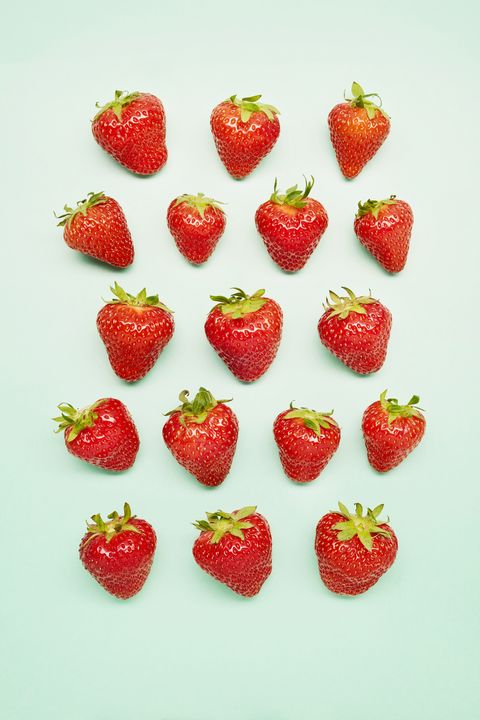
the_burtons Getty Images
2 of 40
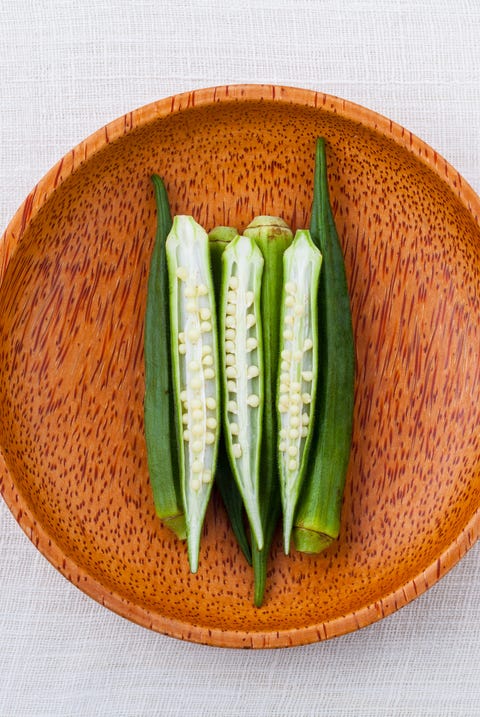
Seksak Kerdkanno / EyeEm Getty Images
3 of 40
Okra
A low-calorie veggie that's perfect as a healthy weeknight side, okra is an especially heart-healthy soluble fiber. It's another good source of polyphenols, which fights inflammation naturally as part of a balanced diet.

Westend61 Getty Images
4 of 40
Potatoes
A baked potato actually provides more heart-healthy potassium than a banana. Getting an adequate amount of this all-important nutrient can also lower blood pressure and reduce your risk of stroke and other cardiovascular diseases.
RELATED: 15 Potassium Superfoods That Aren't Bananas

twomeows Getty Images
5 of 40
Tomatoes
Here's another potassium all-star, with vitamins A and C to boot. Tomatoes also contain the antioxidant lycopene, a compound linked to reducing LDL cholesterol levels in higher doses.

barol16 Getty Images
6 of 40
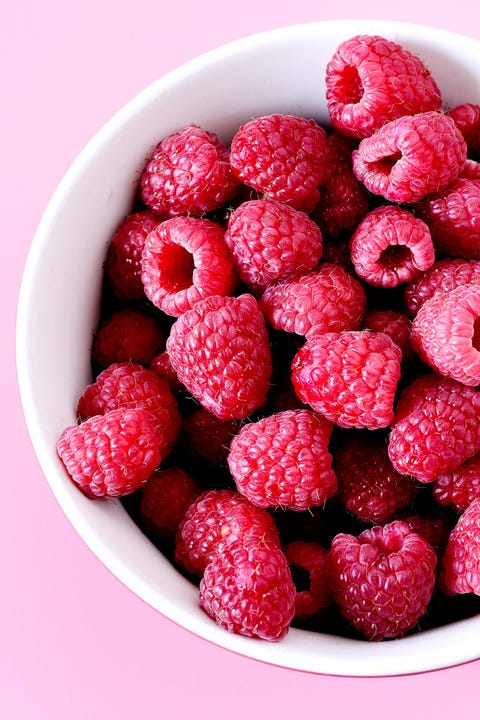
Photo by Cathy Scola Getty Images
7 of 40
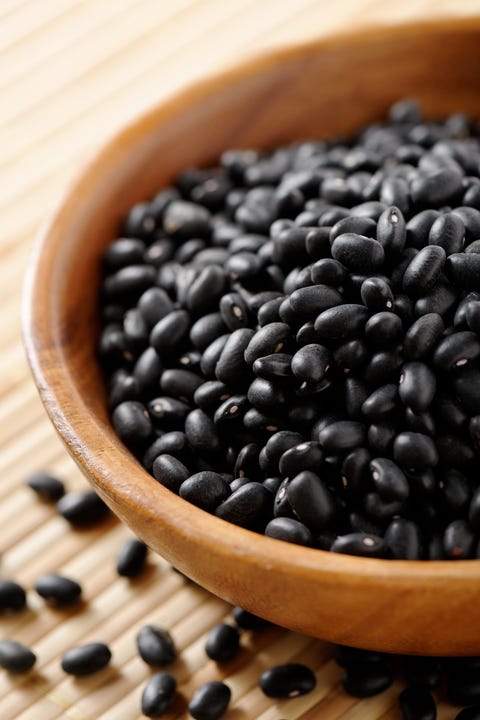
v777999 Getty Images
8 of 40
Black Beans
Black beans are even more fiber-dense, with 8 grams in a half-cup, 100-calorie serving. You'll get plenty of filling plant-based protein too.
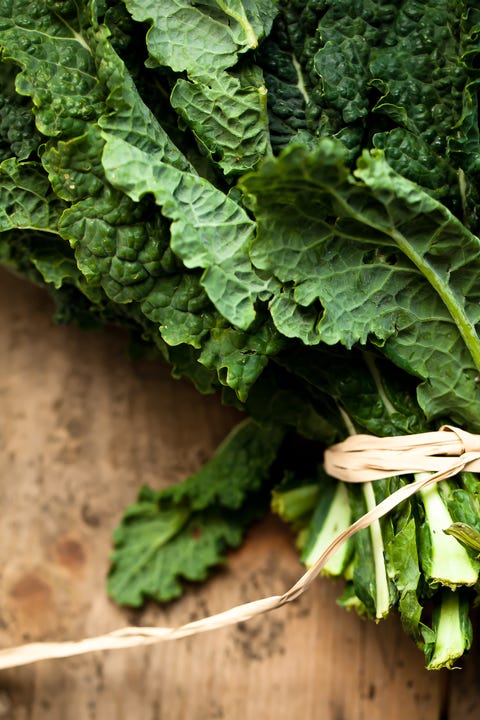
Getty Images
9 of 40
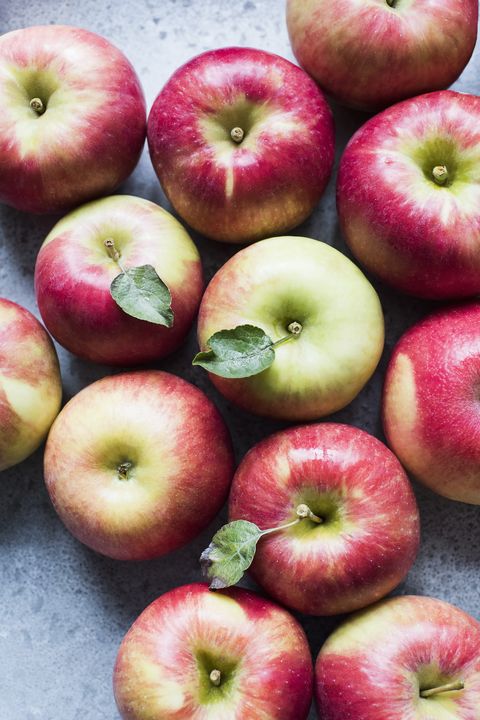
Magdalena Niemczyk Getty Images
10 of 40
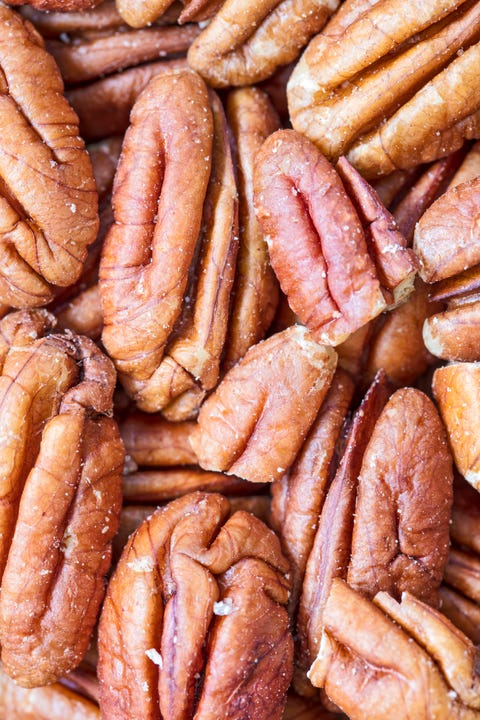
mikroman6 Getty Images
11 of 40
Pecans
Pecans are chock-full of monounsaturated fatty acids, a type of fat linked with improving total cholesterol levels. Another benefit of these tasty tree nuts: Pecans are filled with plant-based antioxidants — including beta carotene and vitamin E — that protect cells from damage from chronic inflammation.

"""Riou, Jean-Christophe""" Getty Images
12 of 40
Sweet Potatoes and Squash

klenova Getty Images
13 of 40

Westend61 Getty Images
14 of 40
Lentils
Lentils are pulses, a.k.a. the dry edible seeds of certain crops (like beans, chickpeas, and peas). Pulses are just everywhere these days because they're packed with plant-based protein and fiber, not to mention antioxidants, minerals, and B vitamins. All of those compounds help protect you from plaque buildup while optimizing blood flow and assisting your body in efficiently using the nutrients you consume.

AnthiaCumming Getty Images
15 of 40
Walnuts
Eating walnuts regularly was linked with a reduced risk of heart disease, according to data from the Nurses' Health Study. Eating as little as one serving of these nuts each week can lower your chances of cardiovascular disease by up to 19%! Consider swapping walnuts for croutons in salads and soups; add 'em to breakfast cereal or yogurt; or nosh on walnuts with fruit to reap the cholesterol-lowering benefits.
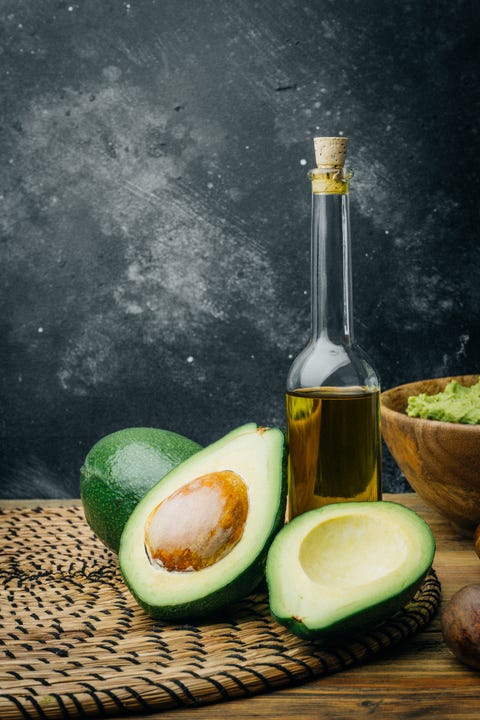
Uladzimir Zuyeu Getty Images
16 of 40
Avocado Oil
Extracted from the pulp of the avocado fruit, avocado oil carries many of the same benefits; its loaded with heart-healthy monounsaturated fats which can help reduce high-blood pressure and cholesterol.
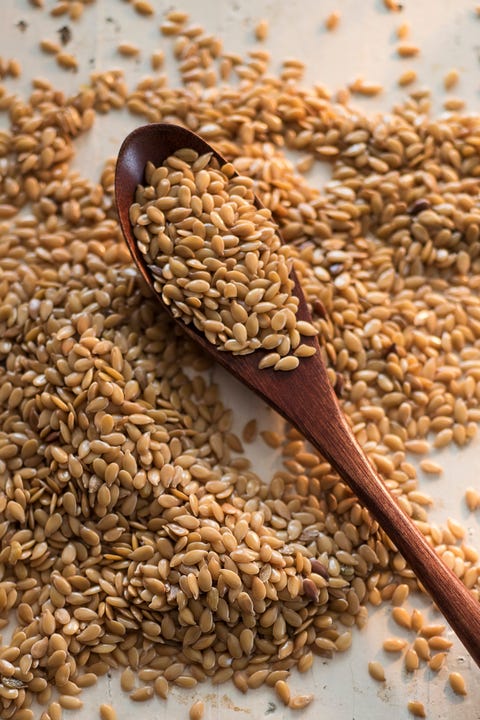
Tetra Images Getty Images
17 of 40
Flaxseeds
A great source of fiber, flaxseeds are also chock full of omega-3 fatty acids and lignans, which is another plant-based compound that can holistically lower your risk of stroke, per research published in Nutrition Reviews. These are all nutrients that the American Heart Association recommends for improving heat health. Plus, flaxseeds contain phytosterols which can help reduce LDL cholesterol in the body.

Eugene Mymrin Getty Images
18 of 40
Herbs and Spices
Flavor foods with herbs and spices whenever you can. It'll help you cut back on condiments high in saturated fat while maximizing flavor. Spices and herbs also pack antioxidants, which can help improve cholesterol levels when combined with veggies. Ones we love: basil, cilantro, rosemary, sage, ginger, garlic, tarragon, black and red chili pepper, mint, and oregano.
RELATED: 10 Herbs You Can Grow Indoors Year-Round
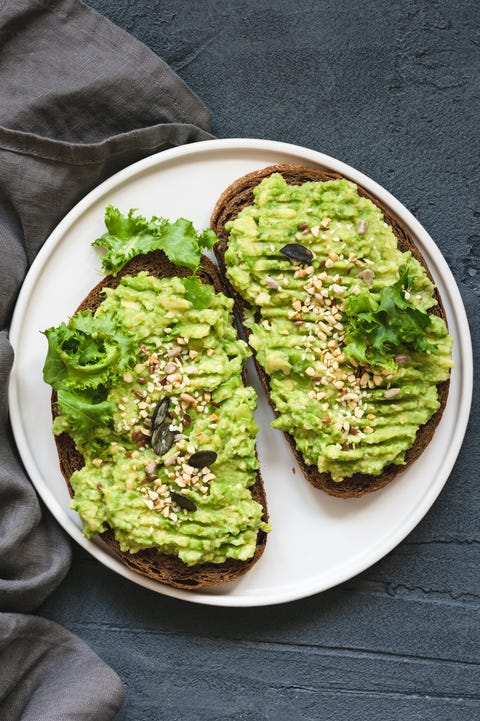
Arx0nt Getty Images
19 of 40

5ugarless Getty Images
20 of 40
Blueberries
Some studies have connected eating blueberries regularly with decreased blood pressure. That's thanks to their circulation-boosting effect on blood vessels (otherwise known as "vasodilation"), which slows the rate of atherosclerosis.

GUSTOIMAGES/SCIENCE PHOTO LIBRARY Getty Images
21 of 40

Eugene Mymrin Getty Images
22 of 40

Lulu Durand Photography Getty Images
23 of 40
Spinach
Adding more leafy greens to your plate can help lower cholesterol by promoting your body production of nitric oxide (NO), which helps dilate blood vessels and reduce atherosclerosis.

belchonock Getty Images
24 of 40
Peanut Butter
Peanuts pack resveratrol and other phytosterols, compounds linked with blocking cholesterol absorption in the gut. The protein powerhouses also work in 8 grams in just 2 tablespoons of peanut butter!

SMarina Getty Images
25 of 40

barol16 Getty Images
26 of 40
Olives and Olive Oil
This Mediterranean diet staple is chock-full of monounsaturated fatty acids, the type of fat linked with improving total cholesterol levels. Specific compounds in olives may also limit the initiation of the inflammatory process — another high cholesterol-promoting risk factor.

Alexandra Grablewski Getty Images
27 of 40
Grapes
Like other produce, grapes contain polyphenolic compounds that may reduce cellular damage. Eating about 1 to 2 cups of grapes per day can also help protect your tissues and decrease markers of inflammation.

Giulia Verdinelli / EyeEm Getty Images
28 of 40

tacar Getty Images
29 of 40
Unsweetened Soy Milk
Filled with plant-based antioxidants and minerals, this protein-packed dairy alternative can help improve your lipid levels. That's because it's lower in saturated fat than other vegan swaps (ahem, coconut oil). Unsweetened versions cut back on sneaky sources of added sugar, so use it in your morning latté for a cholesterol-lowering caffeine boost.

al62 Getty Images
30 of 40
Corn Oil
This overlooked cooking oil belongs in your pantry because it contains plant-sterols, compounds that decrease how much cholesterol-raising saturated fat your body absorbs. Plus, it's packed with antioxidants like other plant-based oils: canola, olive, grapeseed, peanut, safflower, sunflower, and avocado.
Good Diet to Lower Ldl Cholesterol
Source: https://www.goodhousekeeping.com/health/diet-nutrition/g4840/how-to-lower-cholesterol/